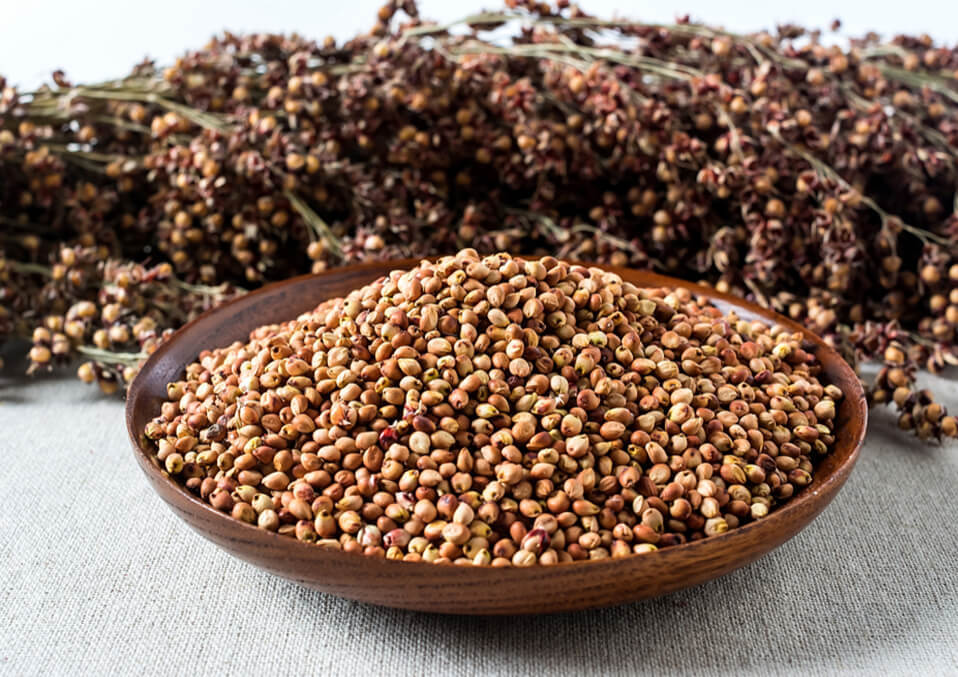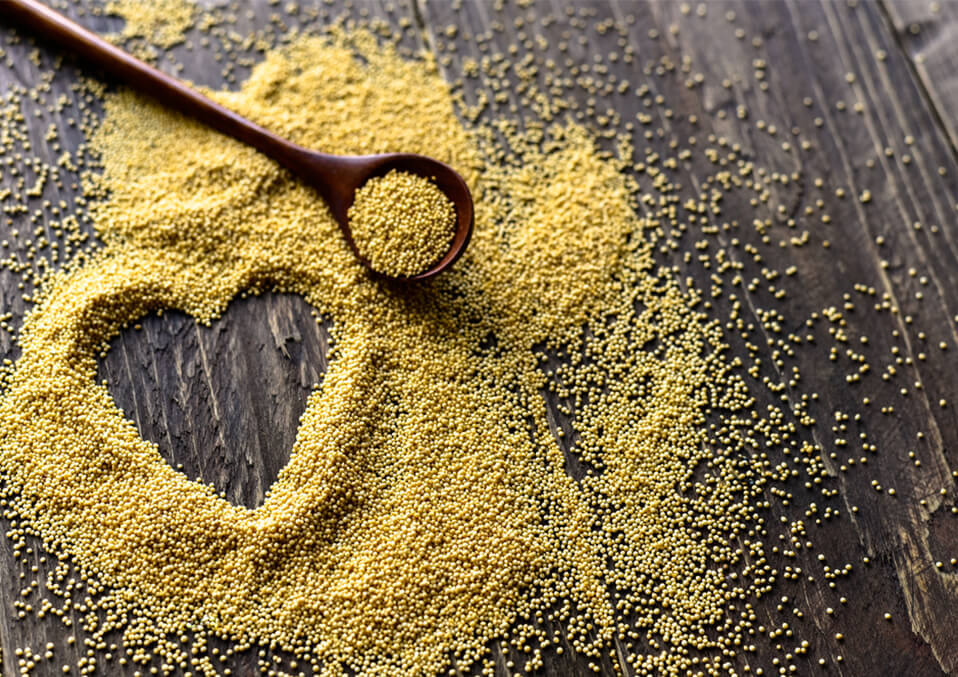
What can you eat during pregnancy?

The pregnancy diet plan you are all over the place now with different ‘healthy’ diet plans from vegan, paleo, buckwheat, Mediterranean, keto to local and traditional diets.
It is hard to say what kind of diet to plan your needs and demands and it would vary from your geographical location and climate.
There is even some diet that suits specific problems; Some examples are a fertility diet to help increase the chances of conception.
Even nowadays, you can see a rise in the old world grains and other food products in the market, many ancient grains that we’re used as a staple food during the 18th and 20th century long before the modern technological era are currently revived on the food market.
Not only that, multiple ancient grains have various health benefits to the body, some of these foods even have great benefits during pregnancy period.
Ancient grains are different from modern grains mostly because many modern grains are bred over hundreds or even thousands of years to create a varying physical appearance and taste, modern grains are genetically modified which may raise conspicuous concern from health-obsessed moms, ancient grains are old grains that are the ancestors of the modern grains we have today.
The following ancient grains are some of the best healthy cereals to eat during pregnancy.
1. Sorghum

Sorghum is a common food staple in Tanzania and other parts of Africa, it is a staple and well-branded food by the tribes of Tanzania especially the Sukuma people, just like any other food staple it commonly abundant.
Sorghum is considered safe to eat during pregnancy and provides several health benefits, sorghum is also a very versatile grain that can replace your quinoa or rice diet meals, sorghum can be served with other whole grains, fruits, or it can be served with maple syrup or honey.
It is a common grain in other countries; Sometimes it is even more popular than other cereals like rice, millet, and maize, but because many people prefer it. Many people prefer consuming sorghum because eating sorghum increases energy levels, especially when eaten at breakfast.
Some people, especially people in Tanzania, have reported that Tanzanian farmers prefer to consume sorghum because it gives them the energy to keep going until they finish farming. Sorghum is extremely high in complex carbohydrates—which is a healthy type of carbohydrate—it is also very high in protein and other amino acids that are building blocks of protein and other body substances such as collagen. Because of this, one meal of sorghum is enough for the whole day, which is essential for many people living in developing countries.
Read also: Benefits of apple cider vinegar during pregnancy
Aside from carbohydrates and protein, other health benefits of the sorghum especially to pregnant women:
- Iron strengthens the immune system and oxygen-carrying capacity in the blood; it is beneficial in maintaining a good blog flow during pregnancy.
- High in fiber, which is good for detoxifying the liver and internal digestive system, also helps in proper digestion of foods.
- Vitamin B6 is a vital component that synthesizes antibodies that fight bacterial infections and further enhances nerve function and stability.
- Niacin or Vitamin B3 provides improved blood circulation in the uterus, which is essential to ensure that the baby is getting enough nutrients from the food you eat.
- Antioxidants that lower the risk of diabetes, cancer, and liver or heart diseases
- Magnesium is another vital mineral that aids in calcium absorption and body temperature regulation, Magnesium can also lessen or minimize the severity of pregnancy symptoms such as nausea, hot flashes or vomiting.
- Gluten-free and Celiac-safe, which is beneficial for pregnant women with gluten sensitivities and is trying to find a good source of complex carbohydrates and protein.
- Phosphorus is another healthy mineral that helps form healthy bones and minimizes any pelvic pain common during pregnancy.
2. Amaranth

Amaranth is another good source of carbohydrates that is Celia-free and gluten-free, Amaranth is an old millennia grain that has been cultivated in South America during the glory days of the Aztec civilization.
Although it is common in predominantly Aztec-related areas, Amaranth is a grain that can be cultivated warm, tropical or Mediterranean climates, Amaranth is slightly different from other grains as it has more complex carbohydrates and protein than any other grains per serving, not only that, it is also widely known that Amaranth is derived from a fruit-bearing plant.
Read also: Do you consider chia seeds for pregnant women
Amaranth has many benefits including:
- It has loaded amounts of complex carbohydrates and protein than any other types of grains, as mentioned before, one cup could fill you up with a whopping 20 grams of protein, this can be a great appetite suppressant as the high levels of protein present reduces insulin levels and hormones that accentuate your appetite.
- It is a great source of Lysine. This specific type of amino acid that the body cannot produce and should be incorporated daily, Lysine is a powerful amino acid that metabolizes fatty acids and other food components, it also helps in calcium absorption and keeps biotin and collagen present in your skin, hair, and nails.
- It is a great source of essential vitamins and antioxidants such as folate which helps in reducing genetic abnormalities in the fetus, Vitamin C and A for healthy development and growth of the baby.
- It is a good source of fiber and Omega 3-fatty acids, amaranth seeds and oil is very high in omega-3 fatty acids that help the proper brain development of the baby while fiber provides good digestion of other foods.
3. Barley
Barley is also a popular old millennium cereal grain that has been acclaimed for its superfood like qualities, Barley has been an ancient grain that was cultivated in Eurasia and other temperate climates for thousands of years.
Barley’s main use before was it was used primarily as animal fodder and the main source of fermentable ingredient for many distilled beverages such as beer, Barley grains are often transformed into a malt.
Read also: Benefits and claims of banana to pregnancy
In today’s age, barely is widely used as a bread and beverage ingredient. Barley provides many health benefits such as
- Barley provides a high amount of insoluble and soluble fiber, it is good for proper digestion and stool formation, fiber does reduce the chances of having constipation during pregnancy.
- Barley contains Beta-Glucan, which is a good substance that reduces cholesterol levels in the blood, this may cause better cardiovascular health and well-performing blood flow in the uterus.
- Barley is rich in vitamins and antioxidants that fight against bacteria, viruses and free radicals that may harm and complicate your pregnancy.
Remember to consult your doctor before trying any food to be served on your plate and remember to eat healthily and stay organic!
Read also:
- Healthy Breakfast for Pregnant Women
- Pregnancy Diet Plan: Is It Hard To Maintain?
- Spinach – The Best Diet For Woman During Pregnancy


